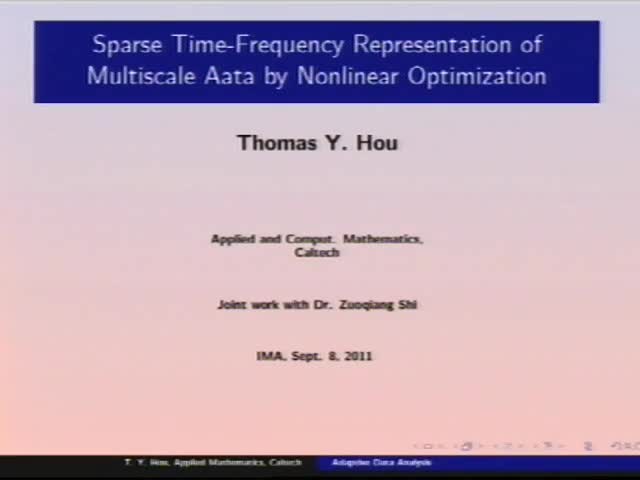Sparse time-frequency representation of multiscale data by nonlinear optimization
Presenter
September 8, 2011
Keywords:
- Optimization, Application
MSC:
- 46N10
Abstract
We introduce a sparse time-frequency analysis method for analyzing nonlinear and non-stationary data. This method is inspired by the Empirical Mode Decomposition method (EMD) and the recently developed compressed sensing theory. The main idea is to look for the sparsest representation of multiscale data within the largest possible dictionary consisting of intrinsic mode functions. We formulate this as a nonlinear optimization problem. Further, we propose an iterative algorithm to solve this nonlinear optimization problem recursively. Numerical examples will be given to demonstrate the robustness of our method and comparison will be made with the EMD method. One advantage of performing such decomposition is to preserve some intrinsic physical properties of the signal, such as trend and instantaneous frequency. Our method provides a mathematical foundation for the EMD method and can be considered to some extent
as a nonlinear version of compressed sensing.
